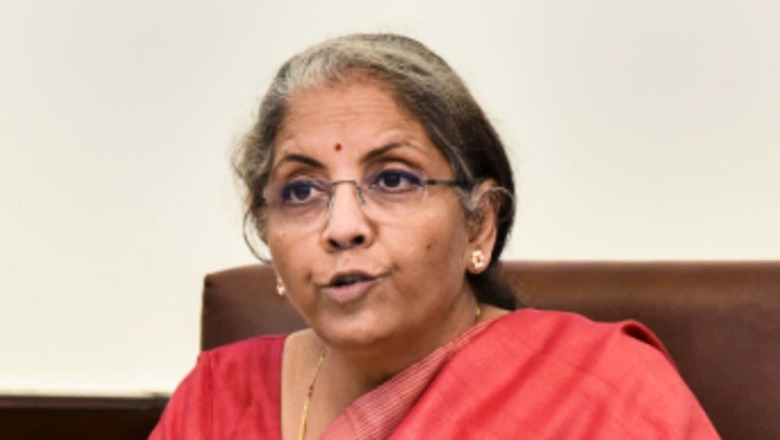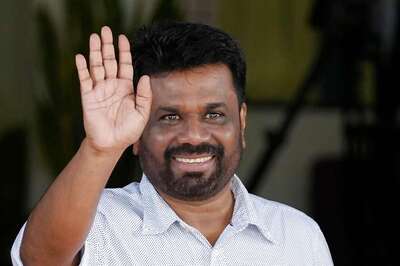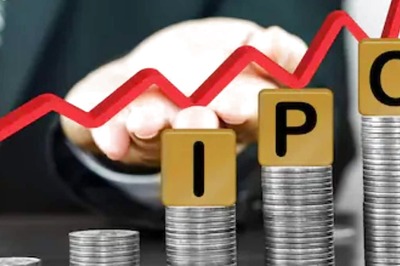
views
There’s a great deal in a name; that which we call privatization by other name would smell sweet if called ‘asset monetization’. At least that’s what the Narendra Modi government thinks. The Opposition disagrees, as we shall see, but asset monetization will help the nation as well as the government if it’s persisted with.
On August 23, Finance Minister Nirmala Sitharaman launched the asset monetization pipeline of central ministries and public sector entities, said an official press release. “The pipeline has been developed by Niti Aayog, in consultation with infrastructure line ministries, based on the mandate for ‘asset monetization’ under Union Budget 2021-22”.
The national monetization pipeline (NMP) estimates aggregate monetization potential of Rs 6 lakh crore through core assets of the government, over a four-year period, from 2021-22 to 2024-25. “The strategic objective of the programme is to unlock the value of investments in brownfield public sector assets by tapping institutional and long-term patient capital, which can thereafter be leveraged for further public investments,” Niti Aayog Vice-Chairman said during the launch. “He emphasized on the modality of such unlocking, which is envisaged to be by way of structured contractual partnership as against privatization or slump sale of assets,” the release said.
If the idea is to shield the NMP process from the Opposition’s attacks, it has not succeeded. Congress leader Rahul Gandhi lost no time in slamming it.
Alternative names for privatization have never convinced its opponents. So when the Left Front government of West Bengal sold 90 per cent stake in then public sector Great Eastern Hotel of Kolkata, calling it ‘joint venture formation,’ it still had to face flak from various quarters.
ALSO READ | In Push to Privatization, Department of Public Enterprises is Back with Finance Ministry
But the fact that every party, from the supposedly Right Bharatiya Janata Party to the Left, has sold state-run entities underlines the legitimacy and efficacy of privatization. As disinvestment minister Arun Shourie in the Atal Bihari Vajpayee government used to say that there is a “consensus in practice” on the subject.
In theory, however, privatization is widely seen as, to use an old cliché, ‘selling family silver to pay the grocer’s bill’.
Worse, just like almost every party has opted for the sale of public sector undertakings (PSUs) at one point or the other, they have also opposed privatization. For instance, in December 2018, Odisha BJP demanded to stop the bidding process for involvement of a private player in power distribution by the Central Electricity Supply Utility. This at a time when, at the Centre, the Niti Aayog was preparing a roadmap for privatization!
No economic policy can be sold politically unless it is morally and philosophically justified. The only politician who has done that in the three decades of economic reforms is Arun Shourie, but then he was an accidental minister, selected by then Prime Minister Vajpayee rather than elected by the people. In general, privatization, like other reforming measures, are sneaked in stealthily and justified on the grounds of efficiency.
Even Shourie, it seems, came to realize the futility of the endeavour to build a political consensus for privatization in particular and liberalization in general. In February 2003, he said, “we will never have a political consensus” on privatization. Therefore, “we should look at consensus in practice and build on it.”
But the problem is that politics today is so polarized and acrimonious that no consensus, in practice or theory, can be expected on any issue, let alone on something as contentious as privatization. Whatever my political rival does is evil; my rivals are my enemies who ought to be crushed by any means—this is the guiding belief.
There is another problem. A very large section of educated people—including many in the media, judiciary, bureaucracy, etc.—genuinely believes that privatization is against the interests of the country and people. After all, this is what they have been taught in schools and universities for generations. PSUs are good, meant for nation building; private enterprise is for profit, often at the expense of the greater good; capitalism is evil; capitalists exploit their employees and fleece their customers—such are the falsehoods that we have been fed since Independence.
Against this backdrop, allegations hurled at any privatizer often acquire a ring of verity. So, 18 years after the public sector India Tourism Development Corporation’s Laxmi Vilas Palace Hotel in Udaipur was sold to a private company, a special CBI court in 2020 asked the premier investigative agency to file an FIR against Shourie, then disinvestment secretary Pradip Baijal, and three others.
This was despite the fact that the sale was done by way of open bidding and the Central Bureau of Investigation, in response to an FIR filed in 2014, had found no evidence of wrongdoing in the transaction. Now, few bureaucrats and businesspersons would like to face criminal cases years after privatization or, as the government would now call it, asset monetization.
Therefore, the government should be able to convince the persons involved, both from the government and industry, that they would enjoy immunity in the future.
In a nutshell, asset monetization may be a shrewd semantic manoeuvre, its success will have to depend not just on Modi government’s persistence but also its dexterity to negotiate through the bogs of public discourse and possible legal ramifications.
The author is a freelance journalist. The views expressed in this article are those of the author and do not represent the stand of this publication.
Read all the Latest News, Breaking News and Assembly Elections Live Updates here.




















Comments
0 comment